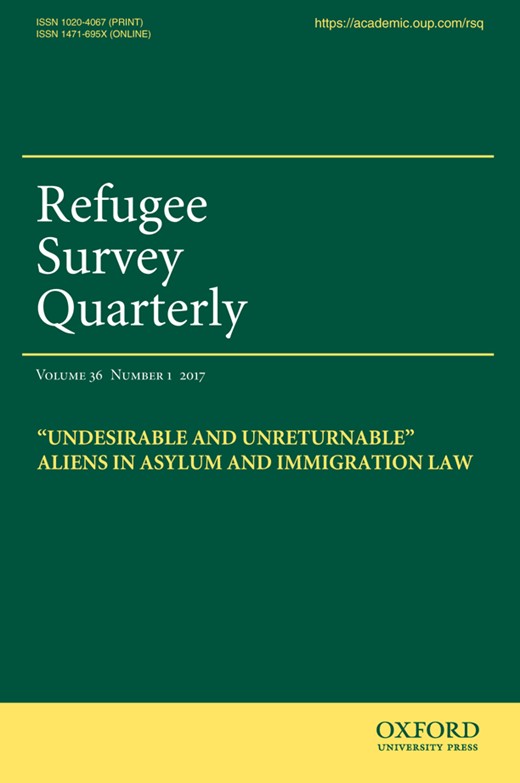-
Views
-
Cite
Cite
Satvinder S. Juss, Detention and Delusion in Australia’s Kafkaesque Refugee Law, Refugee Survey Quarterly, Volume 36, Issue 1, March 2017, Pages 146–167, https://doi.org/10.1093/rsq/hdw020
Close - Share Icon Share
Abstract
Under international refugee law, there is provision for a State to deny protection to persons who might otherwise qualify for refugee status where their actions render them unworthy of it. In Australia an “adverse security assessment” under the 1979 Australian Security and Intelligence Organisation allows the State to take “prescribed administrative action” against a person in order to satisfy the “requirements of security” so as to include indefinite detention of a person who otherwise may qualify for refugee status under international law. The reliance by the Government on what is tantamount to a very broad “character test” in order to effect detention of genuine asylum-seekers has been described as “Kafkaesque” and “schizophrenic” by seasoned observers even within Australia itself. Less well remarked upon is the way in which the Australian system deems people to be “undesirable” once they are deemed to pose a direct or indirect threat to national security and then become “unremovable” because if they satisfy the refugee definition, are at risk of ill-treatment, and cannot be returned, there is little that can be done to them except to detain them indefinitely. This article draws that link and highlights the potential pitfalls for the Australian system for pursuing such a risky policy in refugee law.



